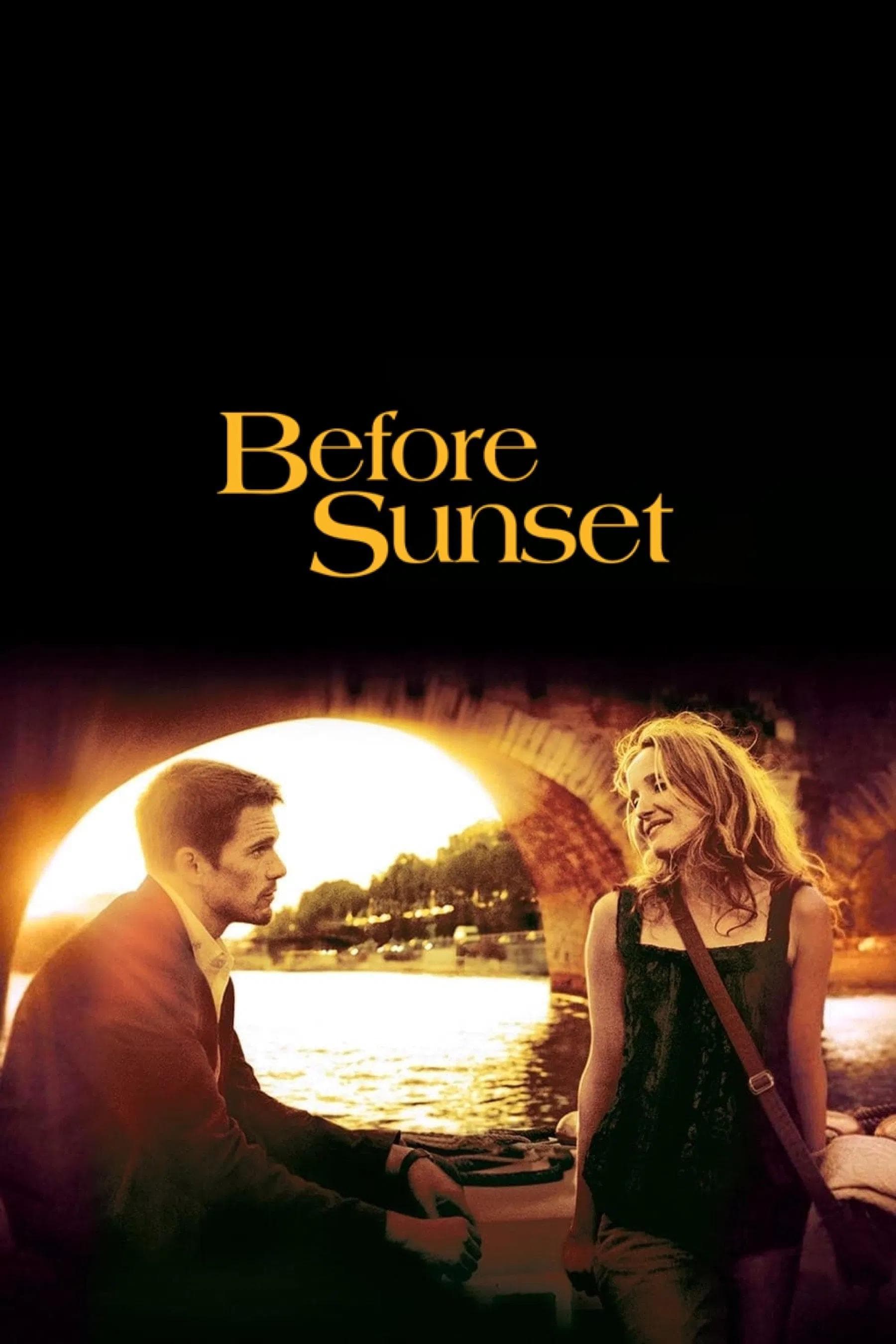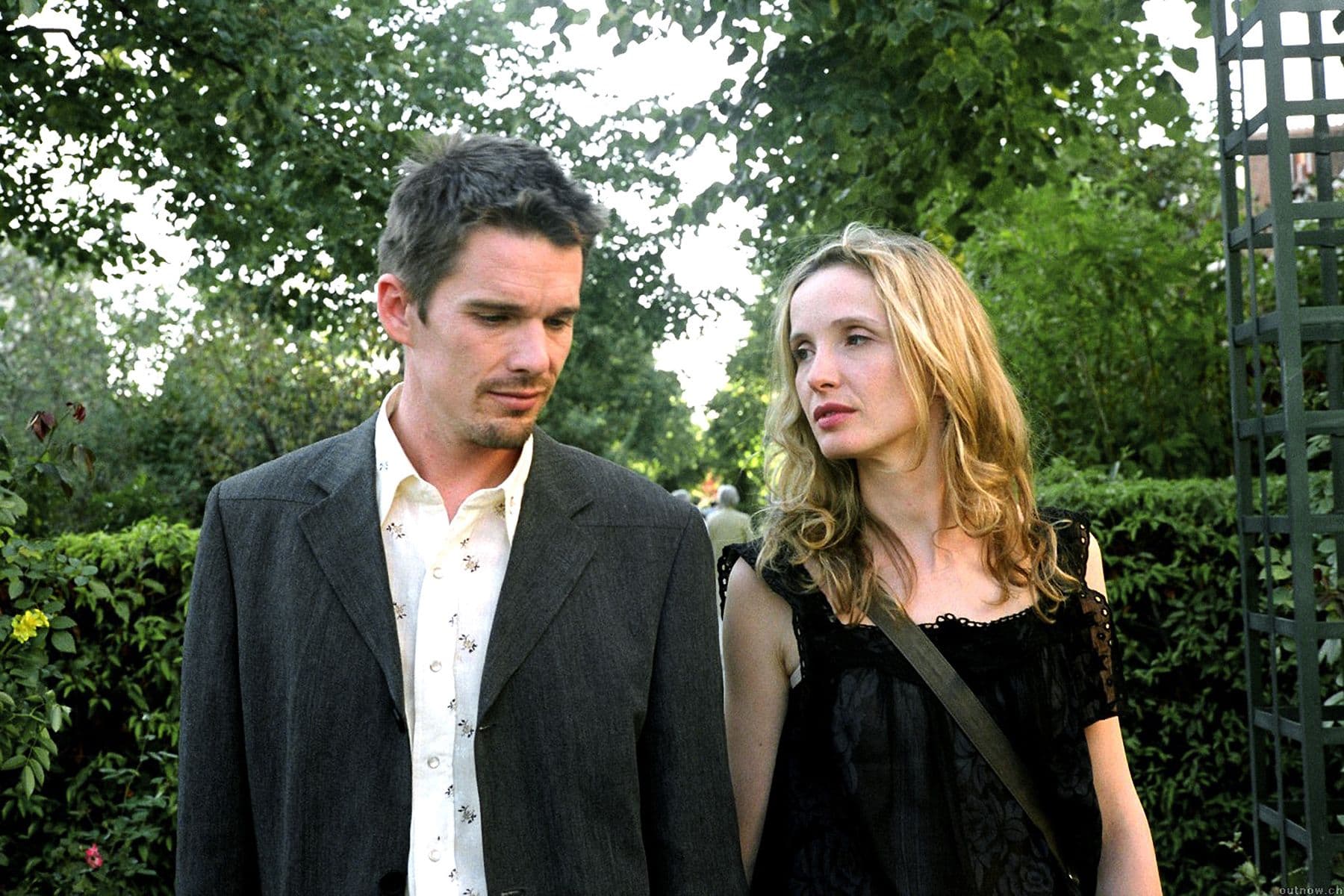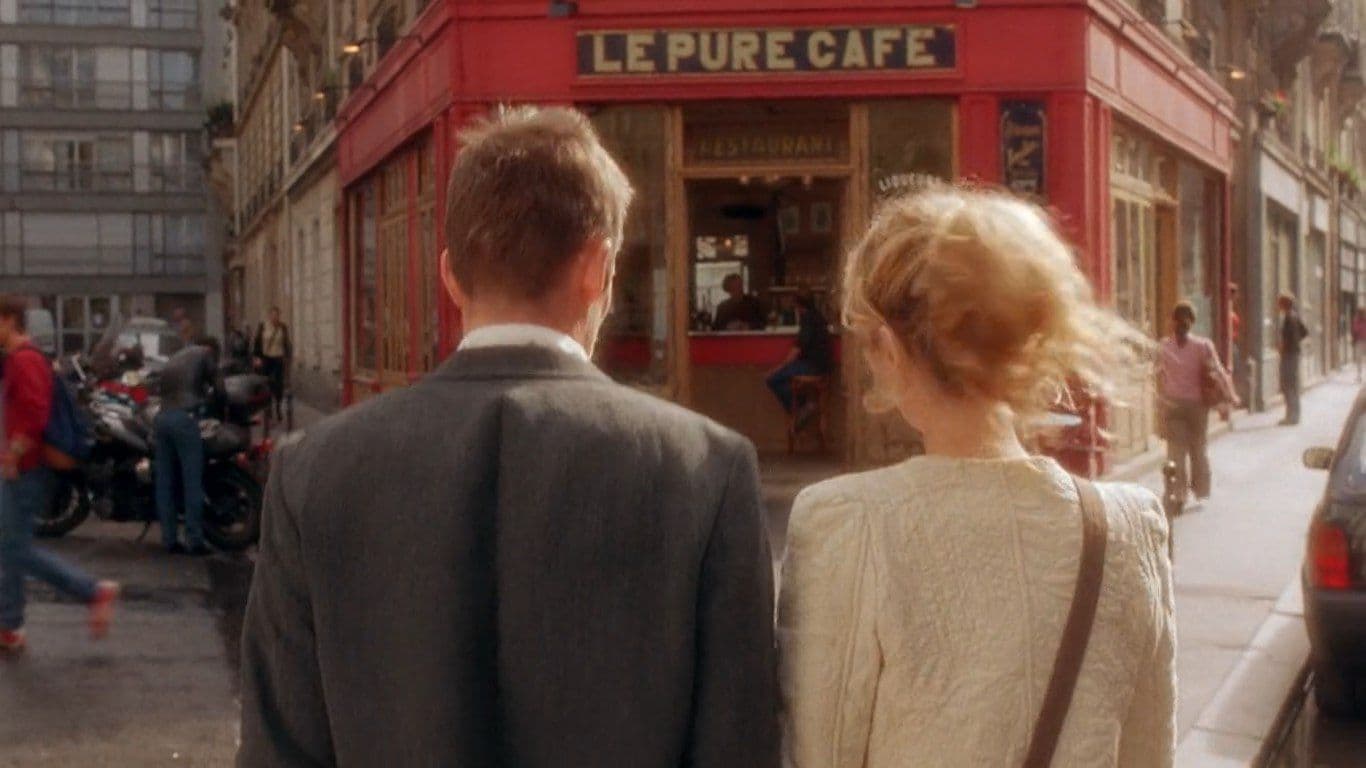
Before Sunset
2004
Rate this movie
Average: 0.00 / 5
(0 votes)
Director
Can a single encounter, a conversation lasting a few hours in a foreign city, become such an absolute yardstick that it makes every subsequent experience pale in comparison? Before Sunset by Richard Linklater does not merely pose this question; it uses it as the foundation on which to build one of the most poignant, intelligent, and romantically devastating films ever made. It is not a sequel in the conventional sense of the term. If Before Sunrise (1995) was poetry about infinite potential, a celebration of youthful idealism, this second chapter is the scar left by that perfect night. It is a work that takes place almost entirely in real time, an hour and twenty minutes of uninterrupted conversation that has the weight and density of a lifetime of regrets.
The film begins in a rather banal, almost documentary style. Nine years have passed. Jesse, now a successful writer, is in Paris presenting his novel, which recounts that magical night in Vienna. Céline is in the audience. They meet again, embarrassed, happy, shielded by a facade of success and adult maturity. He has a plane to catch in just over an hour. They begin to stroll around Paris, and what seems like a reunion between old friends slowly turns into an open-air psychoanalysis session. Layer by layer, their masks are removed, revealing a deep pain for the opportunity lost nine years earlier, when a missed appointment diverted their lives onto separate tracks. They have paid for that separation with terrible suffering, a karma of unsatisfying relationships and growing cynicism. It is fascinating and heartbreaking to see how they both remember that night from their different perspectives and how it shaped, or perhaps distorted, them in the years that followed. For them, Vienna is not a memory, it is a ghost. And for eighty minutes, we witness a dialogue between two people haunted by the ghosts of who they were and, above all, who they could have been together.
Linklater's genius, here at his peak as a philosopher of time and everyday life, lies in his formal choice. The decision to shoot in real time is not a technical virtuosity, it is a statement of intent. It creates an almost unbearable tension. Every minute spent in pleasantries is a minute stolen from a conversation that both know is the last, or perhaps the first, of their lives. The camera, a fluid Steadicam that follows them through the streets of Paris, in parks, on a bateau-mouche, makes us intimate, almost voyeuristic witnesses. There are no cuts, no ellipses. We are there with them, listening to every pause, every nervous laugh, every sigh. This style creates an almost documentary-like authenticity, made even more profound by the fact that the script was written by the director and the two actors, Ethan Hawke and Julie Delpy, who infuse their characters with a truth and specificity that transcends simple acting. Their dialogue is a torrent of ideas, memories, accusations, and confessions, flowing with the disconcerting naturalness of real life.
It is almost impossible not to draw parallels with another masterpiece of romantic cinema, David Lean's Brief Encounter (1945). Both works tell the story of two people, already in relationships, who find a soul mate in a chance encounter, a love as deep as it is impossible. Both are imbued with a poignant melancholy for what ‘could have been’. But that is where the similarities end, and the differences illuminate the change in an entire cultural sensibility. Lean's film is a masterpiece about noble repression. Its protagonists, embodiments of post-war British bourgeois morality, stifle their passion in the name of duty and family. Their love remains a secret, a precious but untouchable memory, and their final separation at the train station is an act of heartbreaking but socially “correct” sacrifice. Before Sunset, on the other hand, is a manifesto on modern rebellion against regret. If Lean's film tells us that sometimes the greatest love is the one we give up, Linklater's film suggests that the greatest sin is not breaking the rules, but giving up a second chance. All the tension in the film is built not towards a farewell, but towards a choice. The question is not “will they break up?”, but “will Jesse have the courage to miss that plane?”
And that choice is consummated in one of the most perfect endings in the history of cinema. When they arrive at Céline's apartment, the facade finally crumbles. With heartbreaking vulnerability, she dedicates a waltz to him, confessing her pain. Then, to lighten the tension, she puts on a Nina Simone record and begins to imitate her, dancing with awkward and wonderful grace. At that moment, she is no longer acting. She is showing Jesse her soul, that idealistic girl from Vienna she believed was buried under layers of cynicism. And as she dances, she turns to him and says the fateful phrase: “Baby, you're gonna miss that plane.” It is a statement, a challenge, and an invitation. Jesse looks at her, and a smile of pure, unconditional adoration spreads across his face. He has found his home again. Linklater cuts away, black screen. We don't need to see anything else. The choice has been made. In that clean cut, there is an enormous act of trust towards the viewer and a celebration of a love that, for once, refuses to become just another beautiful memory. For its formal perfection, its psychological depth, and its almost radical faith in the power of conversation to change a life, Before Sunset is not only the central chapter of a magnificent trilogy, but a standalone and indispensable masterpiece.
Countries
Gallery





Featured Videos
Trailer
Comments
Loading comments...